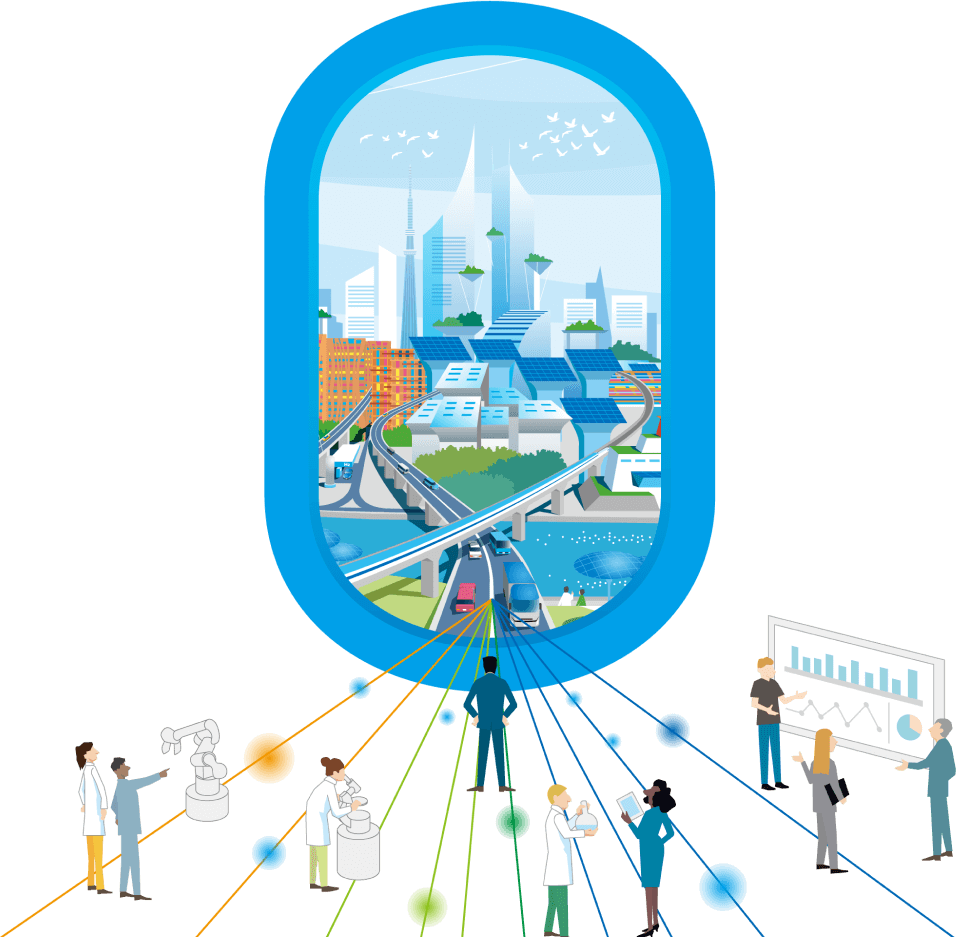Message from the Director

Environmental issues are a common concern of mankind. I hope our research will make the impossible possible.
After studying petrochemistry at Kyoto University, he began working at the chemical company Asahi Kasei in 1972. He holds positions as an honorary fellow at Asahi Kasei, a fellow at the National Institute of Advanced Industrial Science and Technology (AIST), president of the Lithium Ion Battery Technology and Evaluation Center (LIBTEC), lifetime distinguished professor at Meijo University, and distinguished professor at Kyushu University. He won the 2019 Nobel Prize for Chemistry for his work in developing lithium-ion batteries.
In 2020, the Japanese government formulated the Environment Innovation Strategy, a set of guiding principles and plans, to resolve environmental issues. The strategy is aimed at creating innovations to achieve global carbon neutrality as well as a reduction of the accumulated stock of CO2 in the earth’s atmosphere, called the “Beyond-Zero” initiative, by 2050.
The Global Zero Emission Research Center established in the National Institute of Advanced Industrial Science and Technology (AIST) plays a key role in creating innovations in line with this strategy. Global environmental issues are among the most challenging ever confronted by human beings. They are to be solved not by a single technology; various technologies are to be combined to pave the way to make what has thus far been deemed impossible possible.
While global environmental issues have attracted extensive discussion, technological innovation, associated with the Fourth Industrial Revolution and exemplified by artificial intelligence (AI), Internet of Things (IoT), and fifth generation technology (5G), is rapidly accelerating. Technological innovation can easily realize what has been impossible. It serves as a powerful force to solve global environmental issues.
AIST has conducted a great deal of research that contributes to zero emissions. We invite domestic and overseas institutions to collaborate with us in sharing research findings, integrating technologies, and synergistically working together toward a common goal.
To achieve a truly sustainable society, a cooperative framework that transcends institutional and national boundaries would be indispensable. It is my sincere hope that the center will play a central role in developing insight into solving global environmental issues common to all human beings.
March 2020



